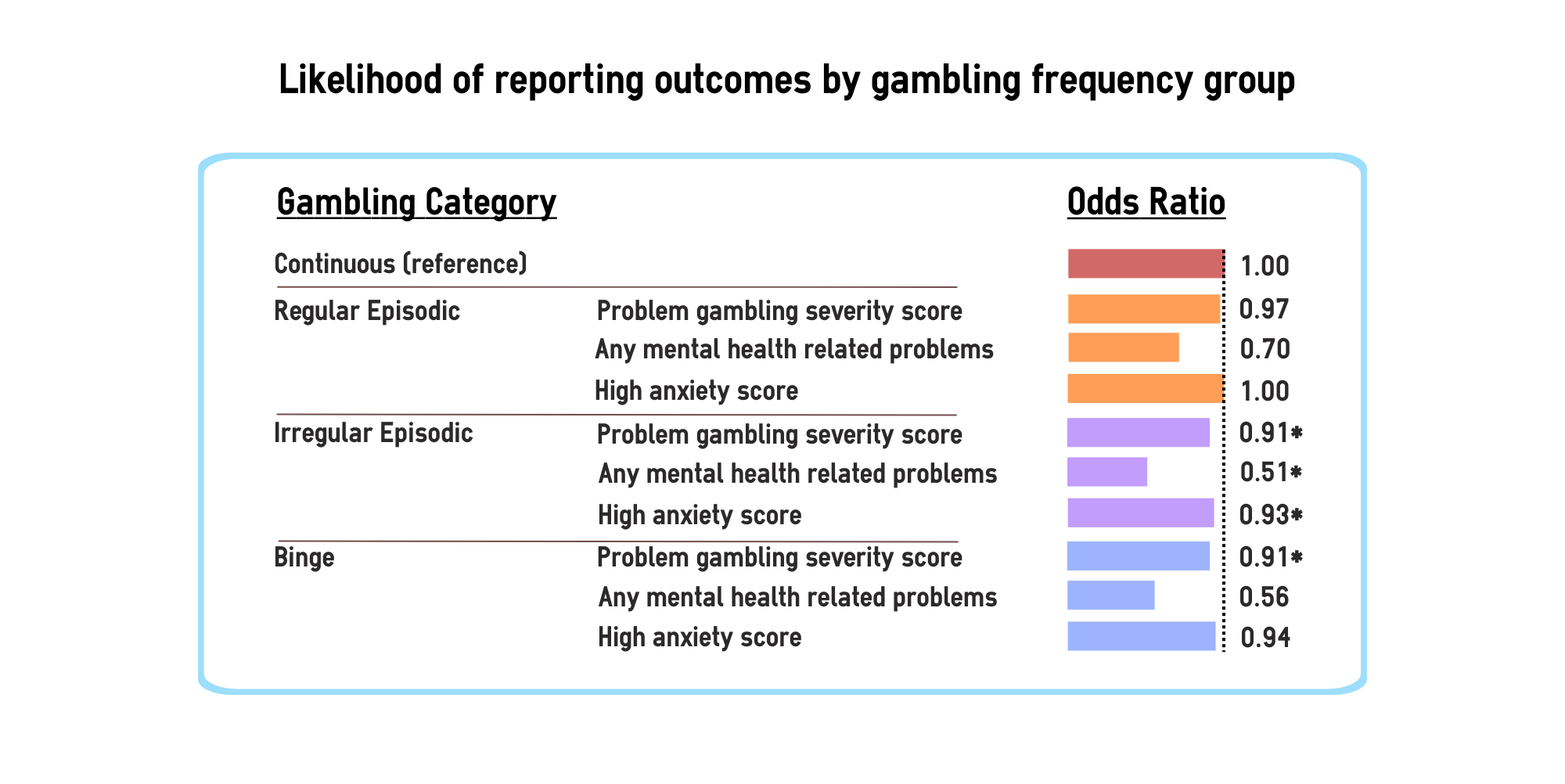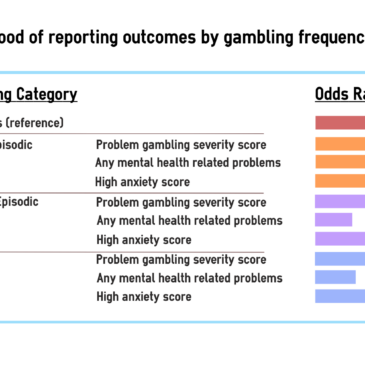Some people who gamble do so regularly, while others might have episodic patterns of gambling and non-gambling. Binge gambling is another type of gambling, where people gamble in irregular patterns but gamble a lot when they do. Are these patterns related to gambling harms? This week, The WAGER reviews a study by Sean Cowlishaw and colleagues that explores how different patterns of gambling behaviors relate to harms.
What is the research question?
Do people who binge gamble experience different gambling-related harms than those who gamble continuously, regularly, and irregularly?
What did the researchers do?
The researchers recruited 214 patients from a medical provider in London, England.1 They classified participants into four categories based on their patterns of gambling:2
- Continuous (i.e., near daily gambling without breaks);
- Regular episodic (i.e., regular alternation between gambling and non-gambling);
- Irregular episodic (i.e., random alternation between gambling and non-gambling);
- Binge (i.e., loss of control over gambling during an irregular episodic gambling episode, beginning suddenly after a period of abstinence. Does not experience pre-occupation with gambling during abstinence).
Participants also responded to questions about anxiety,3 depression,4 and gambling-related problems.5 The researchers used logistic regressions to evaluate whether people who experienced binge, episodic, or continuous gambling also experienced differences in gambling-related harms.
What did they find?
Regular episodic and continuous gamblers had similar profiles. However, compared to continuous gamblers, irregular episodic gamblers were 7% less likely to report high anxiety, 9% less likely to experience gambling-related problems, and 49% less likely to experience any mental health related problems. (See Figure 1.) Binge gamblers were also 9% less likely than continuous gamblers to experience gambling-related problems.
 Figure. Asterisks indicate statistically significant odds ratios. Click image to enlarge.
Figure. Asterisks indicate statistically significant odds ratios. Click image to enlarge.
Why do these findings matter?
People with different patterns of gambling experience different harms. Treatment providers can better support these people if they can learn to distinguish between the different problems these individuals might face. Gambling frequency patterns might be an important marker of mental health consequences.
Every study has limitations. What were the limitations in this study?
To assess patterns of binge gambling, the authors created a new screening tool2 that has not yet undergone validity testing. Validity testing helps ensure that a new tool measures what the researchers think it does. In addition, researchers have recognized that sometimes gambling behaviors might be better explained by a manic episode or medications (e.g., dopamine agonists for Parkinson’s Disease), rather than Gambling Disorder.
For more information:
If you think that you or anyone you know might be experiencing substance use or gambling-related problems, you can find help resources on the BASIS addiction resources page.
— Pat Williams
What do you think? Please use the comment link below to provide feedback on this article.
________________
1Patients were eligible to participate in the study if they were referred to the clinic for the first time.
2Participants responded to questions about patterns of gambling behavior on the Binge Gambling Screening Tool (e.g., Did you start to gamble suddenly after a period of abstinence?”). This tool was newly designed for implementation within the current study.
3Participants responded to questions about anxiety on the GAD-7 (e.g., feeling nervous or on the edge in the past two weeks)
4Participants responded to questions about depression on the PHQ (e.g., little interest or pleasure in doing things)
5Participants responded to questions about gambling-related problems on the PGSI (e.g., gambling in larger amounts to get the same feeling of excitement)




